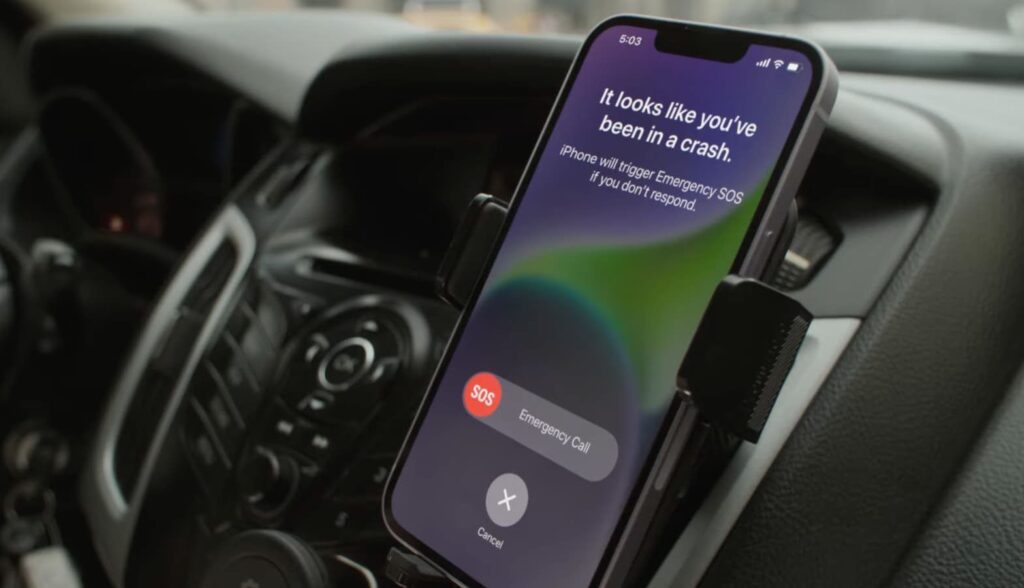Crash Detection, health monitoring, and location tracking create timestamped records that back up what victims say happened, and insurance companies can’t easily dismiss them. Features Apple designed for emergencies now serve a second purpose: documenting accidents.
The Impact of iPhone Crash Detection
Crash Detection monitors sudden stops, impacts forces, pressure changes, and loud sounds. When it senses a serious collision, it calls 911 automatically and logs the exact time, location, and what the sensors detected. This creates a record that no one can alter. Crash Detection records the following:
- Precise collision time accurate to the second.
- G-force readings showing the extent of the impact.
- GPS coordinates marking the exact crash site.
- Vehicle speed based on motion tracking.
Florida accident reconstruction specialists regularly request this information. Insurance adjusters struggle to downplay injuries when independent sensors confirm a severe impact happened exactly when and where the victim said it did.
Apple Watch Health Metrics
Your Apple Watch tracks more than workouts. It monitors heart rate continuously, detects falls, and logs activity patterns. A Florida car accident attorney will use these records to show the physical toll of accidents – especially when medical documentation alone doesn’t tell the full story.
Fall detection matters in hit-and-run cases. When the watch senses a hard fall followed by no movement, it saves that information and can call for help. This has proven valuable when victims were found unconscious with no witnesses around. Health data helps build stronger cases by showing:
- Heart rate spikes during and after the collision.
- Activity drops that show mobility loss.
- Recovery patterns that justify ongoing treatment.
- Sleep disruption linked to pain or trauma.
More Florida residents understand their health data can matter legally. That awareness pushes people to keep their devices charged and their data backed up after accidents happen.
Location and Mapping Data
Apple Maps saves your location history if you turn the feature on. This creates a record of where you traveled, when you stopped, and which routes you took. When someone lies about where an accident happened or who was driving where, this data cuts through the confusion.
GPS timestamps remove doubt about accident locations. This matters in Florida because liability rules change depending on whether you crashed in downtown Miami or on a rural highway in the Panhandle. Different roads mean varying standards.
Attorneys need your permission to access this information, and courts respect that requirement Most accident victims willingly share their own data when it helps their case. The process stays transparent and legal.
Apple Tech in Legal Claims
Apple’s sensors continue to improve each year. Future devices will catch impacts that current technology misses, expanding what accidents get documented. Vision Pro’s spatial awareness could eventually map out collision angles and vehicle positions with detail we haven’t seen before.
Better cameras might start recording automatically when emergencies are detected, adding video to the sensor data. Florida attorneys are watching these developments closely. Consumer technology keeps turning into sophisticated documentation tools that help accident victims get fair settlements.
